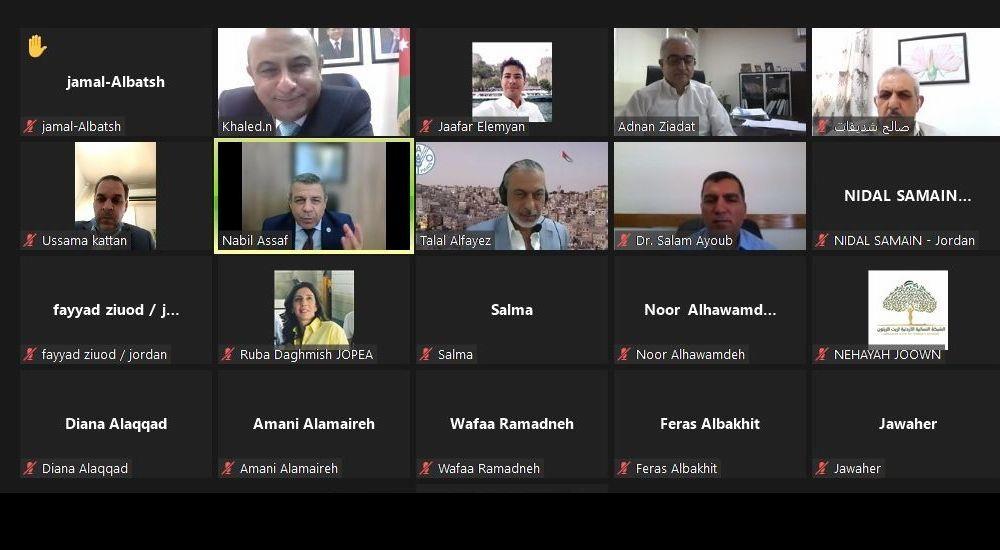FAO discusses a study of the classification of olive mills in Jordan

Amman - 11 August 2021 - The Food and Agriculture Organization of the United Nations (FAO) held this morning, in cooperation with the Ministry of Agriculture, a workshop to discuss the results of the study "The Status of Olive mills in Jordan", which will contribute to identifying the necessary needs for the development of Olive mills.
This workshop was held under the patronage of His Excellency the Minister of Agriculture, Eng. Khaled Al-Hunaifat, in the presence of a group of stakeholders and government partners.
In June of last year, the Ministry of Agriculture submitted a request to the Food and Agriculture Organization of the United Nations to carry out a study of classifying olive mills in order to improve quality and enhance olive oil production in Jordan and to set a system for evaluating and classifying mills. In addition to identifying appropriate recommendations for the development of mills to enhance their efficiency so that they are able to extract olive oil with high quality and taking advantage of opportunities to export Jordanian oil to international markets.
His Excellency the Minister of Agriculture, Eng. Khaled Al-Hanaifat, stated, "The challenges for the advancement of the olive sector are great, and the efforts being made in the ministry will not be sufficient as long as the efforts of the private sector in all its elements are not combined with it and directed by the Food and Agriculture Organization of the United Nations, hoping that your efforts will benefit of this vital sector.”
For his part, the Representative of the Food and Agriculture Organization of the United Nations, Engineer Nabil Assaf, said, "During the past period, the reality of olive mills has not been studied fully and in detail, and therefore some mills still use traditional methods of olive oil extraction, which affects the quality and efficiency of oil extraction, although some olive mills use advanced extraction techniques and adopt good manufacturing practices, but the majority of mills are not well developed, in addition, not all olive mills are classified according to international classification standards. Therefore, they are unable to export the oil to the wider international market. Having a classification system will help owners contemporary will enhance their business and will ensure the production of high quality olive oil.”
Jordan is among the top 10 olive producing countries in the world, with more than 20 million trees across the kingdom covering 130,000 hectares of the country's total area. About 78% of olive trees are grown in rainfed areas where the average rainfall is more than 300 mm and the rest are grown under irrigation. Perennial olives have relatively low water consumption compared to other tree crops, and most of them are not irrigated in Jordan. The olive tree is one of the most important trees planted in Jordan, covering about 72% of the total area planted with fruit trees and 36% of the total cultivated area (80% of the total olive cultivar is harvested for olive oil and 20% for table).
